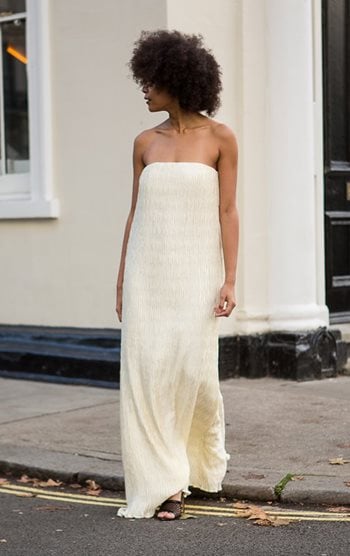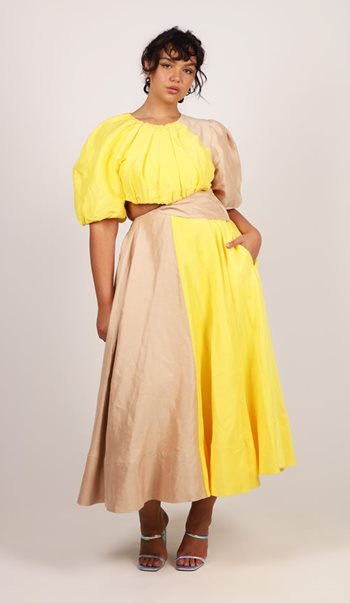After spotting a gap in the market, entrepreneurs Ange-Nicole Mahoro and Evelina Nailenge took it upon themselves to bring upscale, sustainable fashion to Cape Town at an affordable price.
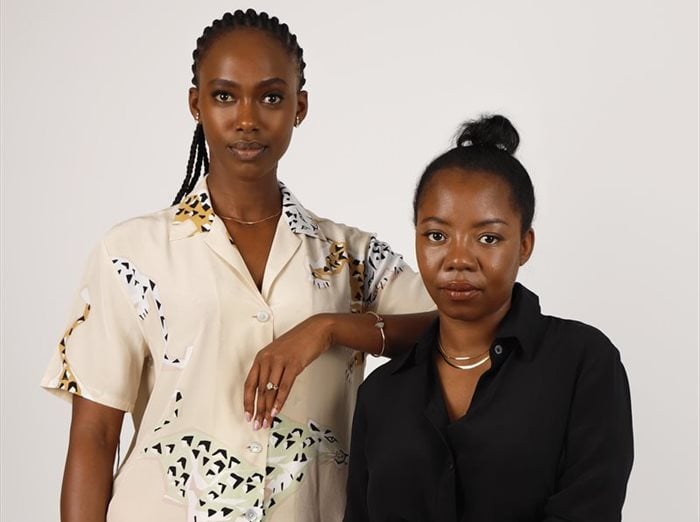
Closet Runway founders Ange-Nicole Mahoro and Evelina Nailenge. Source: Studio C Photography
Situated in De Waterkant, Cape Town, the luxury boutique provides consumers with the option to rent designer clothing items for special occasions, events, photoshoots and everyday wear, saving them from having to make large purchases.
This option also allows their customers to participate in sustainable fashion, as renting instead of buying decreases their carbon footprint and reduces the quantity of clothes that inevitably end up in landfills.
Our interview with Mahoro and Nailenge dives deeper into these concepts.
Could you give us a little insight into your background? How did you start your business and why?
We are Ange-Nicole Mahoro and Evelina Nailenge. Together we own Closet Runway.
Nailenge: I am originally from Namibia. I moved to South Africa to pursue a Bcom law/LLB degree. After college, I relocated to Cape Town and worked in legal consultancy for three years. I then shifted to finance, where I am now working in business development.
Mahoro: I began my modelling career in Burundi 13 years ago as a muse for my older brother, who was a fashion designer at the time. An encounter with a local photographer led to other great modelling opportunities in East Africa, resulting in me walking the runway for major fashion events. In 2019, I relocated to Cape Town and signed with MyBooker, a Cape Town-based modelling agency.
When you were starting out, did you find that there was a market for what you were offering?
We recognised there was a gap in the market before we even started. We have experienced it many times ourselves - needing to go somewhere, or to attend events, and not being able to find the right outfit to wear. So, that was the initial premise of Closet Runway, to try and close that gap. We also wanted to offer good, quality clothing that can be worn repeatedly and can withstand constant, sustainable dry cleaning.
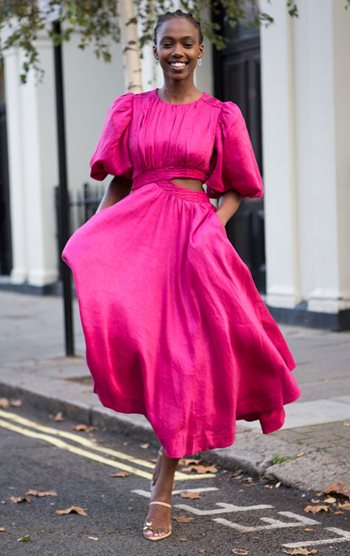
Source: Masoet Photography
How important is sustainability to you and why?
Sustainability is quite important to our business model. We want to offer an alternative to how we consume fashion by allowing consumers to update their looks while being more sustainable. Slow fashion makes this possible. We also want to provide good, quality items that have been produced by reputable and regulated clothing makers, manufacturers and designers.
It is important that we find ways to combat the rise in fast fashion that has occurred over the last decade. Therefore, we are very deliberate when it comes to choosing brands to buy from. For instance, we might enquire whether or not they pay their employees a decent salary.
We live in an age of even faster fashion with companies such as Shein becoming prevalent in the industry. What are your thoughts on the proliferation of these sorts of corporations and what do you think can be done to stem the tide of fast fashion?
Fast fashion is something we abhor. Despite this, we recognise that the situation can be rather complex depending on the consumer. That being said, there is no reason for consumers to go through as much fashion as they do now and have done for some time. We need to tackle and change certain ideas and beliefs, such as the assumption that we are not allowed to repeat outfits or that we need to buy new clothes for every season.
Overconsumption needs to be countered with made-to-last ideals and ideas. Additionally, we need to educate consumers on the importance of buying high-quality clothing. We also need to highlight the practice of dumping clothes in landfills, which is common amongst fast fashion corporations, and discuss why this is detrimental to the environment.
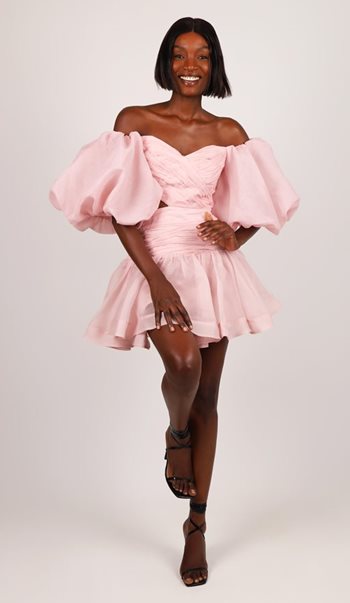
Source: Studio C Photography
On the other end of the spectrum, the interest in sustainable fashion has produced companies like yours, which provide their customers with more eco-friendly closets. Many of these companies can even be found on social media sites like Instagram. Do you have strategies in place to ensure you stay ahead of the game?
We are skilled, understand clothing trends, are able to spot which clothing items can enhance a closet at different price points and are able to build rent-worthy wardrobes that are appropriate for various settings and events. Additionally, technology allows our consumers to reach us from anywhere in South Africa, thanks to Instagram and the CR website.
Although our main aim is to stay ahead of the game and commercialise our business model so we can make a profit, we still welcome competition. We strongly support the idea of a rental market in South Africa. For a market to exist, competition is required. The more of us there are, the more options consumers have.
Many fast fashion retailers are implementing greenwashing as a way to convince consumers that their products are morally okay again. Are you able to break through the noise?
There are many platforms to verify which brands are making and producing clothing ethically and which are not. The fashion industry is still grappling with its environmental impact, which has long been a source of concern for environmental activists and is now also a source of concern for consumers.
This is good because when consumers care deeply about how their clothes are produced, it can result in serious consequences for clothing companies. We do our part by sourcing clothing from companies and brands that are open and honest about their manufacturing practices and factory locations. If such information is not available, we will not procure clothing from them.
Have you faced any significant challenges starting up and establishing your business?
Despite South Africa's infrastructure and the existence of organisations such as African Fashion International (AFI), getting our name out there has been difficult. The ecosystem is not set up in such a way that we have easy access to stylists. This applies to other factions of the fashion industry as well, whether be it for photoshoots, magazine work, etc.
What has your experience been like as entrepreneurs in South Africa? What have you found to be the pros and cons?
We are looking for more collaboration between organisations such as AFI, local designers and design houses, stylists, costume designers, and upcoming actors and actresses. Tons of local magazine titles have closed down in the last eight years; we need to rethink and redesign the fashion ecosystem. The time to fix it is now.
Where would you like to see yourselves in the next five to 10 years? What is the end goal that will satisfy your entrepreneurial hearts?
We would like to have secured financing for expansion into a wider range of clothing, handbags and customised support, such as a subscription model. We would also like to have secured incubation in order to retain capital and gain financial support, thus accelerating our growth.










































